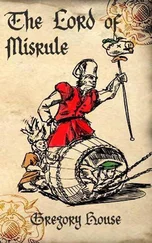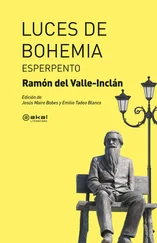Various - Bohemia under Hapsburg Misrule
Здесь есть возможность читать онлайн «Various - Bohemia under Hapsburg Misrule» — ознакомительный отрывок электронной книги совершенно бесплатно, а после прочтения отрывка купить полную версию. В некоторых случаях можно слушать аудио, скачать через торрент в формате fb2 и присутствует краткое содержание. Жанр: История, foreign_edu, на английском языке. Описание произведения, (предисловие) а так же отзывы посетителей доступны на портале библиотеки ЛибКат.
- Название:Bohemia under Hapsburg Misrule
- Автор:
- Жанр:
- Год:неизвестен
- ISBN:нет данных
- Рейтинг книги:4 / 5. Голосов: 1
-
Избранное:Добавить в избранное
- Отзывы:
-
Ваша оценка:
- 80
- 1
- 2
- 3
- 4
- 5
Bohemia under Hapsburg Misrule: краткое содержание, описание и аннотация
Предлагаем к чтению аннотацию, описание, краткое содержание или предисловие (зависит от того, что написал сам автор книги «Bohemia under Hapsburg Misrule»). Если вы не нашли необходимую информацию о книге — напишите в комментариях, мы постараемся отыскать её.
Bohemia under Hapsburg Misrule — читать онлайн ознакомительный отрывок
Ниже представлен текст книги, разбитый по страницам. Система сохранения места последней прочитанной страницы, позволяет с удобством читать онлайн бесплатно книгу «Bohemia under Hapsburg Misrule», без необходимости каждый раз заново искать на чём Вы остановились. Поставьте закладку, и сможете в любой момент перейти на страницу, на которой закончили чтение.
Интервал:
Закладка:
Revolution was in the air. Switzerland, Germany, and Italy were being engulfed by it. “The world is ill,” Metternich complained in a letter to Count Apponyi. “Each day we can observe how the moral infection is spreading, and if you find me unyielding, it is because I am of a nature that will not give in before opposition.”
The news of the fall of Louis Philippe in France reached Prague February 29, 1848. Next day, notwithstanding the strictest censorship, the city was aflame with revolutionary talk. The liberals in neighboring Germany had summoned delegates to meet at Frankfort, March 5th. Italy seethed with political excitement. Kossuth, in Hungary, demanded that a constitution be granted to the people in Austria. Overnight Metternich’s elaborate system of government, maintained by the police and the military, was tumbling down like a house of cards. In Prague, as in other large centres, everybody clamored for a constitution, though the masses, educated as they were to regard the government as something above and apart from them, hardly comprehended what the word “constitution” meant.
In the midst of the turmoil the sickly Emperor Ferdinand V. (1835-1848) abdicated in favor of his nephew, Francis Josef, then a youth of eighteen. The latter had been on the throne but a few weeks, when his advisers, Schwarzenberg, Windischgrätz, Stadion, and others, decided to do away with the constitution of the revolutionists and to substitute it with an octroy constitution, the reason assigned being “the incapacity of parliament.” The choice fell on this particular young man because Prince Schwarzenberg recommended as ruler “one whom he would not have to be ashamed to show to the troops.” Though not relevant, it is interesting to recall how the present emperor acquired his cognomen. “What shall it be, gentlemen,” asked Schwarzenberg in the ministerial council – “Francis Josef, or simply Francis?” A sub-secretary of state thought that plain Francis would sound very well indeed, but the fear having been expressed that the name Francis might remind the Austrian nations too much of the ghost of Metternich, Francis Josef, instead of plain Francis, was chosen for the youthful monarch.
To Windischgrätz constitutions, ministries accountable to the people, and parliaments were abominations. He made no secret of the fact that he was opposed to the rule of lawyers; those alone who carried bayonets and muskets were entitled to be called patriots and saviors of the fatherland.
Under the Premiership of Alexander Bach (1853-1859) the monarchy relapsed to the methods of police rule that obtained prior to 1848. The reactionaries who surrounded the throne encouraged the youthful monarch to rule like an autocrat.
Minister Bach, by the way a highly gifted man, who had in his early days trifled with radicalism, believed that an alliance between the church and the state would strengthen both and that against the unity of the altar and the throne the radicals would be powerless. “The Austrian Monarchy,” he confided to a noted clerical, “considering its peculiar structure, has only two firm bases on which it can rest in safety and unity, – the dynasty and the church.” Accordingly he brought about, in 1855, the adoption of the famous concordat, a convention between the pope and the monarchy, a pact that increased immensely the legal power of the papacy in Austria. The concordat was abolished in 1868 because of the bitter opposition of the liberals. Bohemia, the land of Hus and Havlíček, fought the concordat openly and fearlessly, suspecting in it a hidden menace to its freedom of conscience and to national aspirations.
Конец ознакомительного фрагмента.
Текст предоставлен ООО «ЛитРес».
Прочитайте эту книгу целиком, купив полную легальную версию на ЛитРес.
Безопасно оплатить книгу можно банковской картой Visa, MasterCard, Maestro, со счета мобильного телефона, с платежного терминала, в салоне МТС или Связной, через PayPal, WebMoney, Яндекс.Деньги, QIWI Кошелек, бонусными картами или другим удобным Вам способом.
1
The word Czech, which is being freely used in the Anglo-American press, is a corrupt form of Čech. The German form is Czech, Tscheche, the French Tchèque. But, inasmuch as Čech is sounded more nearly like Checkh and not Czech, the form Czech fails utterly of its purpose and its use should be discontinued. The people themselves prefer to be called Bohemians, not Czechs, which latter appellation is not generally known or understood. Some years ago a noted scholar was severely censured because he named his magazine, edited in the German language, but Bohemiophile in tendency, “Čechische Revue,” instead of “Böhmische Revue.” The truth of the matter is that the appellation Czech is an invention of Vienna journalists, who, by persistent use of the term, wish to give a warning to the world that Bohemia is not all Čech, but part German and part Čech.
2
Silesia was much larger, but Frederick II. of Prussia despoiled Maria Theresa in 1742 of a major portion of it. Thus was created Prussian Silesia and Austrian Silesia. In Macaulay’s “Life of Frederick the Great,” we read why the Prussian King made war on his neighbor. In manifestoes he might, for form’s sake, insert some idle stories about his antiquated claim on Silesia; but in his conversations and Memoirs he took a very different tone. His own words were: “Ambition, interest, the desire of making people talk about me, carried the day; and I decided for war.” If there is a rectification of Prussian boundary after the war, a portion of Prussian Silesia, that is still Bohemian, should be returned to Austrian Silesia.
3
Representation in parliament being determinable by the result of the enumeration, one can at once see of what vital concern it is to non-Germans to obtain a census free from political bias. As matters are, the Germans constitute 35 per cent. of the population, yet have 52 per cent. representation in the Reichsrath (parliament), while 24 per cent. Bohemians are represented in parliament only by 17 per cent.
4
“The Slavdom: Picture of Its Past and Present,” Prague, 1912.
5
Now of every 1,000 inhabitants in Bohemia 956.61 profess the Catholic faith. Due to various reasons – spiritual, political, and historical – more than one-half of the American Bohemians have seceded from the Catholic Church. Some have joined various Protestant sects, but the majority of the secessionists are Free-thinkers.
6
However, the Patent of Tolerance extended only to Protestants of the Helvetian and Augsburg Confessions, not to the Bohemian Church, which latter had been denied recognition.
7
On February 9, 1748, a bill was introduced in the English Parliament “to relieve the United Brethren (so-called in Comenius’ time), or Moravians, from military duties and taking oaths.” Among the speakers was General Oglethorpe, who spoke in support of the bill. “In the year 1683 a most pathetic account of these brethren was published by order of Archbishop Sancroft and Bishop Compton,” said Oglethorpe. “They also addressed the Church of England in the year 1715, being reduced to a very low ebb in Poland, and his late Majesty, George I., by the recommendation of the late Archbishop Wake, gave orders in council for the relief of these Reformed Episcopal Churches, and letters patent for their support were issued soon after. But since 1724 circumstances have altered for the better, and they have wonderfully revived, increased and spread in several countries. They have even made some settlements in America. In the province of Pennsylvania they have about 800 people to whom the proprietor and Governor gave very good character.”
Читать дальшеИнтервал:
Закладка:
Похожие книги на «Bohemia under Hapsburg Misrule»
Представляем Вашему вниманию похожие книги на «Bohemia under Hapsburg Misrule» списком для выбора. Мы отобрали схожую по названию и смыслу литературу в надежде предоставить читателям больше вариантов отыскать новые, интересные, ещё непрочитанные произведения.
Обсуждение, отзывы о книге «Bohemia under Hapsburg Misrule» и просто собственные мнения читателей. Оставьте ваши комментарии, напишите, что Вы думаете о произведении, его смысле или главных героях. Укажите что конкретно понравилось, а что нет, и почему Вы так считаете.












